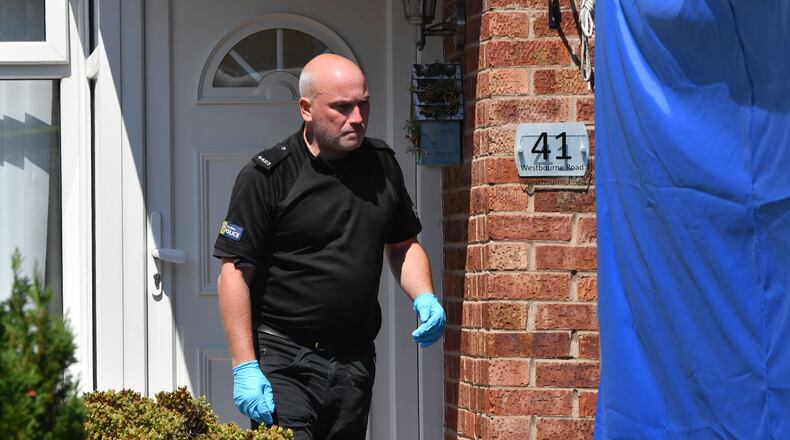A health care worker in England was arrested Tuesday on suspicion of murdering eight infants at a Chester hospital, and police suspect her of trying to kill six more.
The unnamed woman was arrested following more than a year of investigation into the deaths. The Guardian reported in May 2017 that Cheshire police were investigating the deaths of 15 babies in the neonatal unit at Countess of Chester Hospital over a 12-month span.
Cheshire police officials said Tuesday that the scope of the investigation -- dubbed Operation Hummingbird -- has expanded since then, with the total number of suspicious infant deaths now at 17. They are also investigating another 15 near-deaths between March 2015 and July 2016.
The health care worker’s arrest is not the end of the investigation, according to Cheshire police Detective Inspector Paul Hughes, who is the lead detective on the case.
"It's really important to remember there's still a long way to go in this inquiry and a lot of work before we're able to fully ascertain exactly what happened to these 32 babies subject to this investigation," Hughes said in a video released by authorities. "And we are committed to a thorough investigative process."
Hughes said Tuesday morning’s arrest will have a huge impact on the families of the babies.
“It’s important to remember they are the heart of this inquiry,” Hughes said.
The BBC reported that officials would not say what the woman's role was at the hospital when the babies died. Police officers were also searching a home in Chester in connection with the investigation.
A news release issued Tuesday said the parents of the babies are being supported throughout the investigation by specially-trained officers and are being kept abreast of all developments.
"Whilst this (arrest) is a significant step forward in our inquiries it is important to remember that the investigation is very much active and ongoing at this stage," Hughes said in a news release. "There are no set timescales for this coming to a conclusion, but we remain committed to carrying out a thorough investigation as soon as possible."
Hughes described the investigation as “highly sensitive and complicated.” He said a team of medical specialists has been consulted and continues to work alongside the investigative team to ensure the probe is as thorough as possible.
Detectives have also interviewed a number of staff members at Countess of Chester Hospital. Hughes said his team is aware of the impact the investigation is having on staff and patients at the hospital, which serves Chester and the surrounding area.
Credit: Anthony Devlin/Getty Images
Credit: Anthony Devlin/Getty Images
Hospital officials, who last May brought the Cheshire police in to investigate the unexplained infant deaths, said in a statement Tuesday that they continue to cooperate with the police investigation.
"Asking the police to look into this was not something we did lightly, but we need to do everything we can to understand what has happened here and get the answers we and the families so desperately want," Ian Harvey, medical director for Countess of Chester, said. "The Countess is now equivalent to a Level 1 Special Care Baby Unit, and we are confident the unit is safe to continue in its current form."
The hospital's own investigation began after officials there noted an increase in neonatal deaths in 2015 and 2016. The hospital in July 2016 limited the intensive care services provided by the neonatal unit, according to previous statements from hospital officials.
An independent review was conducted the following February by the Royal College of Paediatrics and Child Health and the Royal College of Nursing. The independent reviewers, whose final report can be found here, made a number of recommendations for the hospital's neonatal unit, but could find no single cause or factor to explain the increase in baby deaths.
One of the recommendations in the report was to further investigate the deaths of the infants. Ultimately, the police were called in.
"We are deeply sorry for the further distress and heartache this will cause," Harvey said at the time. "Throughout this, we have never lost sight of the families left bereaved by the loss of their baby, and they will continue to be our main concern."
About the Author
The Latest
Featured



